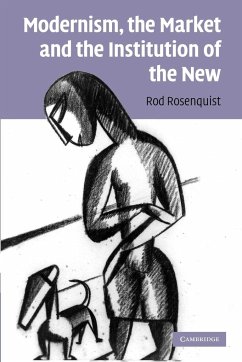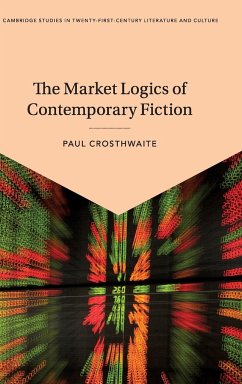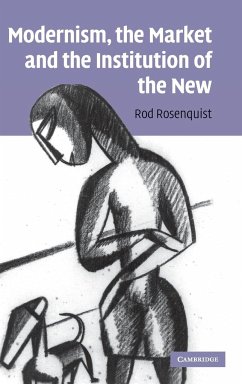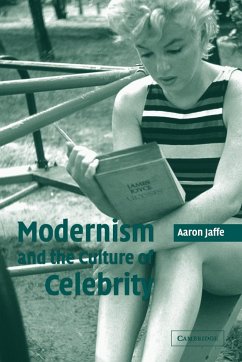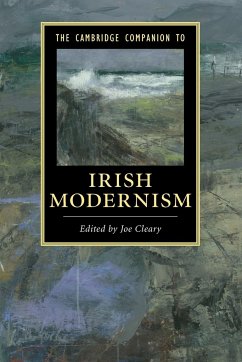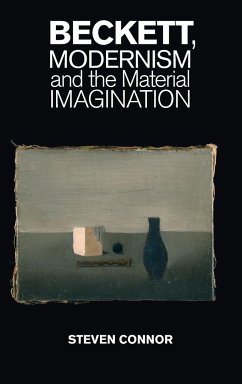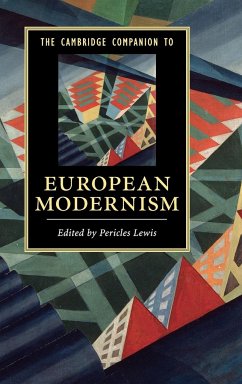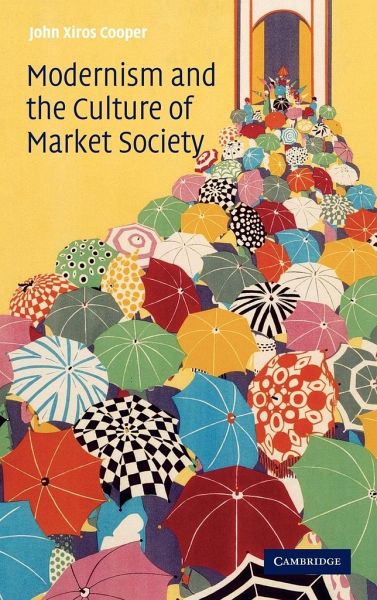
Modernism and the Culture of Market Society
Versandkostenfrei!
Versandfertig in 1-2 Wochen
105,99 €
inkl. MwSt.
Weitere Ausgaben:

PAYBACK Punkte
53 °P sammeln!
Short description/annotationCooper explores the complex relation between the Modernist avant-garde and the culture of capitalism.Main descriptionMany critics argue that the modernist avant-garde were always in opposition to the commercial values of market driven society. For John Xiros Cooper, the avant-garde bears a more complex relation to capitalist culture than previously acknowledged. He argues that in their personal relationships, gender roles and sexual contacts, the Modernist avant-garde epitomised the impact of capitalism on everyday life. Cooper shows how the new social, cultural, an...
Short description/annotation
Cooper explores the complex relation between the Modernist avant-garde and the culture of capitalism.
Main description
Many critics argue that the modernist avant-garde were always in opposition to the commercial values of market driven society. For John Xiros Cooper, the avant-garde bears a more complex relation to capitalist culture than previously acknowledged. He argues that in their personal relationships, gender roles and sexual contacts, the Modernist avant-garde epitomised the impact of capitalism on everyday life. Cooper shows how the new social, cultural, and economic practices aimed to defend cultural values in a commercial age, but, in this task, modernism became the subject of a profound historical irony. Its own characterising techniques, styles, and experiments, deployed to resist the new nihilism of the capitalist market, eventually became the preferred cultural style of the very market culture which the first Modernists opposed. In this broad ranging study John Xiros Cooper explores this provocative theme across a wide range of Modernist authors, including Joyce, Eliot, Stein and Barnes.
Table of contents:
Introduction: the modernist avant-garde and the culture of market society; Part I. The Posthuman Scene: 1. Approaching modernism; 2. Ideology; 3. Permanent revolution; 4. Epistemology of the market; Part II. The Regime of Unrest: Four Precursors: 5. Bloody farce; 6. A variegated daguerreotype; 7. The unnameable; 8. Childhood as resistance; Part III. The Margin is the Mainstream: 9. Artisinal production, Ulysses, and the circulation of goods; 10. History and the post-psychological self in The Waste Land; 11. La boheme: Lewis, Stein, Barnes; 12. Bloomsbury nation; Bibliography.
Cooper explores the complex relation between the Modernist avant-garde and the culture of capitalism.
Main description
Many critics argue that the modernist avant-garde were always in opposition to the commercial values of market driven society. For John Xiros Cooper, the avant-garde bears a more complex relation to capitalist culture than previously acknowledged. He argues that in their personal relationships, gender roles and sexual contacts, the Modernist avant-garde epitomised the impact of capitalism on everyday life. Cooper shows how the new social, cultural, and economic practices aimed to defend cultural values in a commercial age, but, in this task, modernism became the subject of a profound historical irony. Its own characterising techniques, styles, and experiments, deployed to resist the new nihilism of the capitalist market, eventually became the preferred cultural style of the very market culture which the first Modernists opposed. In this broad ranging study John Xiros Cooper explores this provocative theme across a wide range of Modernist authors, including Joyce, Eliot, Stein and Barnes.
Table of contents:
Introduction: the modernist avant-garde and the culture of market society; Part I. The Posthuman Scene: 1. Approaching modernism; 2. Ideology; 3. Permanent revolution; 4. Epistemology of the market; Part II. The Regime of Unrest: Four Precursors: 5. Bloody farce; 6. A variegated daguerreotype; 7. The unnameable; 8. Childhood as resistance; Part III. The Margin is the Mainstream: 9. Artisinal production, Ulysses, and the circulation of goods; 10. History and the post-psychological self in The Waste Land; 11. La boheme: Lewis, Stein, Barnes; 12. Bloomsbury nation; Bibliography.





